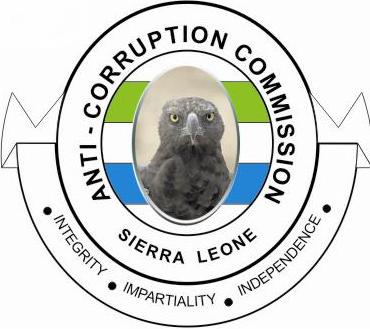By: Yangie Deborah Sesay
Article 8 (5) of the United Nations Convention against Corruption (UNCAC) states that “Each State Party should endeavor, where appropriate and in accordance with the fundamental principles of its domestic law, to establish measures and systems requiring public officials to make declarations to appropriate authorities regarding, inter alia, their outside activities, employment, investments, assets and substantial gifts or benefits from which a conflict of interest may result with respect to their functions as public officials.” Article 52(5) also states that, “Each state party shall consider establishing, in accordance with its domestic law, effective financial disclosure systems for appropriate public officials and shall provide for appropriate sanctions for non-compliance.”
As a member and signatory to UNCAC, and in fulfillment of the above-mentioned provisions, the Anti-Corruption Commission of Sierra Leone has domesticated and implemented the asset declaration since 2008. Section 119 sub section (1) of the Anti-Corruption Act 2008 requires all public officers to declare their income, assets and liabilities, thus, in 2019 when this same section amongst others were amended the category of persons who should declare was limited to public officers from grade 7 and above, and those below grade 7 but have fiduciary responsibilities, and those holding elected offices and Presidential appointees.
This section further states that “Every public officer shall, within three months of becoming a public officer, deposit with the Commission a declaration of his income, assets and liabilities and thereafter in every two years that he is a public officer, but not later than 31st March and also while leaving office”.
Undoubtedly, since the period when assets declaration was paper-based to date, it has proven to be an effective tool to enhance integrity, transparency and accountability in public life, discouraging illicit enrichment, building public trust and creating a good image among citizens for public officials who have been entrusted with the management of public properties and resources.
However, over the past few years the assets declaration exercise has witnessed a paradigm shift from analogue to digital. Studies have shown that information, communication, technology (ICT) has been perceived to be very effective for the prevention, detection and prosecution of corrupt individuals. ICT can promote transparency and accountability, and can provide interactive platform which can be used to increase citizens’ participation in the fight against corruption. The World Wide Web (www) and smart phones seem to be effective tools anti-corruption outfits can use to inform and receive complaints from the public. (Bertot et al., 2010; Davies and Fumega, 2014; Subhajyoti, 2012).
Fundamentally, in a bid to catch up with the digital revolution and harness its numerous benefits which has transformed every aspect of human endeavor, the Commission has decided to join the digital space by introducing the online assets declaration. The introduction of the online Assets Declaration by the ACC also demonstrates the visionary and progressive leadership of the current ACC Commissioner Francis Ben Kaifala Esq.
Today, every public officer can access the assets declaration form online through the Commission’s website www.anticorruption.gov.sl It is crucial to note that public officers must have a valid email address, and either a National Social Security Number or Employment Identification Number before they can access the online assets declaration form.
The email address is where the unique username and password generated by the system are sent which can be used to start the declaration process.
The online or electronic asset declaration process will reduce dependence on paper-based or manual form of declaration, minimize face-to-face interactions, strengthen privacy and security, and save both the institution and public officers the time and energy to physically distribute, collect or submit the assets declaration forms. Despite the few challenges associated with low internet usage and connectivity, the online process will surely increase the number of declarants. That is why public officers should comply with the law and endeavor to complete and submit their asset declaration forms to the Commission before the legislated deadline of March 31st.
The Assets Declaration Unit and the Public Education and Outreach Department of the Commission have been popularizing the exercise and conducting training of trainers for representatives of public institutions to aid the process. This is also in a bid for all public officers to submit their forms within the above stated deadline.
Even though public officers are encouraged to declare their income, assets and liabilities, it is worthy to note that false declaration is an offence as enshrined in Section 122 (1) of the AC Act 2008 as amended in 2019. In addition, failure to submit a complete asset declaration form to ACC without reasonable excuse amounts to an offence under the Act and can warrant administrative sanctions to be taken against the individual as set out in sub-section (5) as follows: (a) “withholding the salary of public officer; (b) suspend the public officer after one month of default but not more than three months; (c) dismiss the public officer after exceeding three months”.




